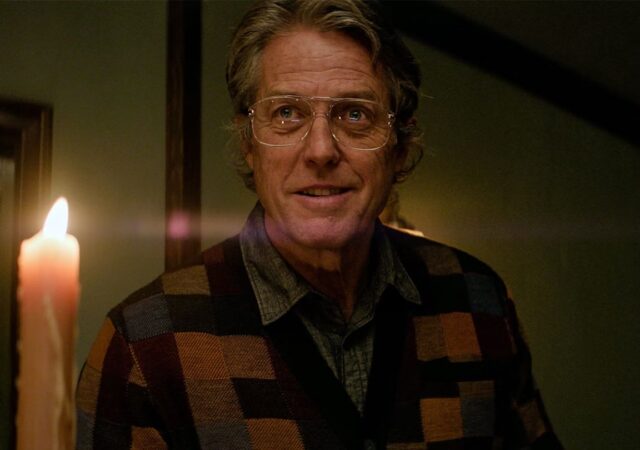FX’s Shogun (2024) is a masterpiece of epic storytelling. It is a sumptuous, immersive 10-episode limited series that breathes new life into James Clavell’s beloved 1975 novel. Set in feudal Japan at the turn of the 17th century, Shogun weaves a complex tapestry of political intrigue, cultural clashes, and personal journeys that captivates from start to finish. Creators Justin Marks and Rachel Kondo have crafted a faithful yet fresh adaptation that stands as a remarkable achievement in an era of remakes and reboots.
At the heart of Shogun’s narrative is the power struggle between the ambitious Lord Toranaga, played with quiet intensity by Hiroyuki Sanada, and his rival regents as they vie for control in the wake of their ruler’s death. Toranaga’s machinations are complicated by the arrival of English pilot John Blackthorne, portrayed by Cosmo Jarvis, whose presence threatens to upset the delicate balance of power. As Blackthorne navigates this strange and often brutal world, he forms a complex bond with Lady Mariko (a stunning Anna Sawai), a samurai’s daughter who becomes his translator and guide.
Shogun’s greatest strength lies in its rich characterizations and the phenomenal performances that bring them to life. Sanada’s Toranaga is a study in contrasts, a man whose calm exterior belies a ruthless ambition and a secret dream that drives his every move. Jarvis brings a rugged charisma to Blackthorne, a man torn between his past and his growing understanding of Japanese culture. But Sawai emerges as the series’ breakout star, imbuing Mariko with quiet strength and dignity, making her a formidable player in political chess.

The supporting cast is equally impressive, with standout turns from Tadanobu Asano as the opportunistic Kashigi Yabushige, Shinnosuke Abe as the fierce samurai Buntaro, and Moeka Hoshi as the enigmatic Usami Fuji. Each character is given room to grow and evolve throughout the series, their arcs intertwining in unexpected and often poignant ways.
Shogun’s narrative unfolds deliberately, almost meditatively, setting it apart from other prestige dramas. Marks and Kondo trust their audience to follow the complex web of alliances and betrayals, allowing the tension to simmer beneath the surface before erupting in bursts of sudden violence. The series doesn’t shy away from the brutality of its setting, depicting a world where life is often cheap and honour is everything. Yet even in its darkest moments, Shogun finds moments of beauty and grace, whether in the quiet conversations between characters or the stunning visuals that transport us to another time and place.
Indeed, Shogun is a feast for the senses, with impeccable production design, lush cinematography, and an evocative score that immerses us fully in its world.
The attention to detail is staggering, from the intricately crafted costumes to the meticulously researched sets that bring feudal Japan to vivid life. The series’ commitment to authenticity extends to its use of language, with much of the dialogue delivered in subtitled Japanese – a bold choice that pays off in spades, adding to the sense of immersion and realism.
As Shogun builds towards its climax, it becomes clear that this series is more interested in the journey than the destination. While the spectre of war looms large over the narrative, the actual battles are fought in the hearts and minds of its characters. Toranaga’s grand plan to become shogun is less about military might than the careful manipulation of pawns on a chessboard, each move calculated to bring him closer to his ultimate goal.

This emphasis on character over spectacle reaches its apex in the series finale. This masterful episode subverts expectations by eschewing a grand battle in favor of quiet moments of revelation and catharsis. In a stunning 15-minute sequence, Toranaga lays bare his secret heart to Yabushige, revealing the true depths of his ambition and the price he’s willing to pay for power. It’s a scene that encapsulates everything that makes Shogun great – the subtle power of its performances, the richness of its themes, and the audacity of its storytelling.
Yet even as Toranaga’s victory seems assured, Shogun doesn’t shy away from the cost of his ambition. The finale is haunted by absence and loss, from Mariko’s tragic fate to the grief that consumes those left behind. These moments are a poignant reminder that even the most carefully laid plans can have unintended consequences and that pursuing power often comes at a steep personal price.
Ultimately, Shogun is a triumph of adaptation, a series that honours its source material while forging its path.
Marks and Kondo have crafted a world that feels familiar and wholly new, populated by characters who are both larger than life and deeply human. It’s a series that demands your full attention, rewarding close viewing with layers of meaning and emotional resonance.
Shogun’s success is all the more remarkable when considered in today’s television landscape. In an era dominated by franchise fare and algorithm-driven content, Shogun feels like a breath of fresh air – a series that trusts its audience to follow a complex, character-driven story told mainly in a foreign language. It’s a reminder of the power of great storytelling to transport us to other worlds and illuminate the human condition in all its messy, complicated glory.

Of course, Shogun is not without its flaws. Some viewers may find the pacing too slow, particularly in the early episodes, as the series establishes its world and characters. Others may bristle at the lack of a more conventional action-packed climax, though the series’ commitment to a more reflective conclusion feels true to its themes and tone.
But these are minor quibbles in the face of Shogun’s overwhelming strengths.
This series demands to be savored, a rich and rewarding journey into a world that feels exotic and utterly human.
It’s a testament to the power of adaptation done right, honoring the spirit of its source material while finding new and surprising ways to bring it to life.
Ultimately, Shogun is more than just great television—it’s a cultural event, a series that will be discussed and dissected for years to come. It reminds us of the transformative power of storytelling to bridge divides and illuminate our shared humanity. And it challenges other creators to be bold, take risks, and trust in their audience’s intelligence and curiosity.
As the credits roll on Shogun’s final episode, one is left in awe of the scope and ambition of what Marks, Kondo, and their collaborators have achieved. This series will stand the test of time, a new classic that will inspire and influence future generations of storytellers. It’s a privilege to have experienced it and a joy to know it will endure as a landmark of television history.






















